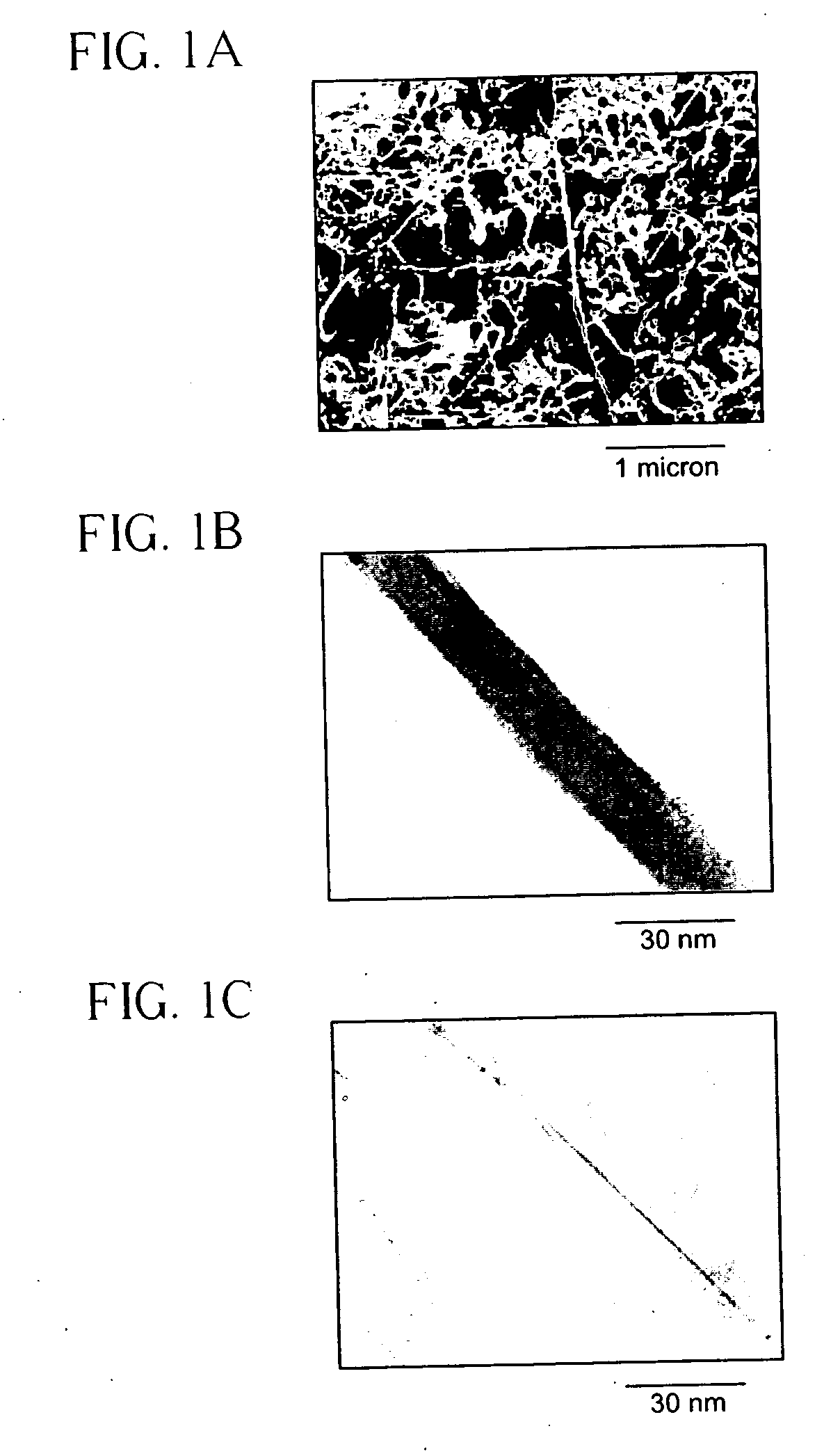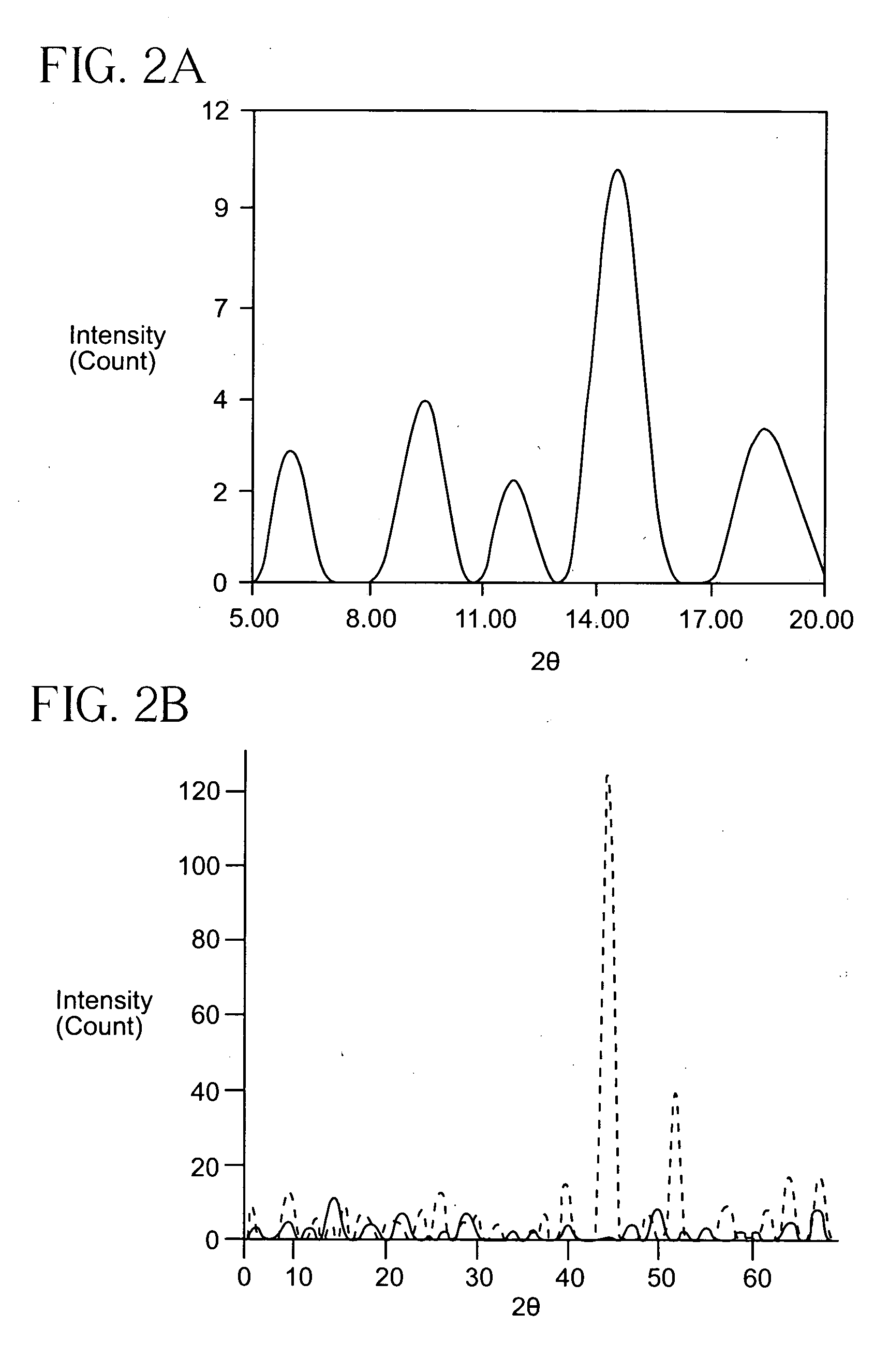Carbon nanotube adducts and methods of making the same
a carbon nanotube and adduct technology, applied in the field of nanotechnology, can solve the problems of nanotubes, high solubility of catalysts, time-consuming, complex processes, etc., and achieve the range of solvents in which the solubility is increased
- Summary
- Abstract
- Description
- Claims
- Application Information
AI Technical Summary
Benefits of technology
Problems solved by technology
Method used
Image
Examples
examples
[0116] Adduct Comprising Carbon Nanotube and Wilkinson's Complex
[0117] Nanotube Synthesis and Purification. Raw SWNTs (FIG. 1a) were produced by the laser oven method (Carbolex, Lexington, Ky.), and individual tubes have a reported mean diameter of 1.41 nm, although experimentally, a large distribution of diameters was observed. The raw SWNT material contains about 30 wt % of metal catalysts, such as Ni and Co. To purify these materials, the SWNTs were oxidized according to existing procedures by an acidic KMnO4 solution's and then washed thoroughly with HCl and water. Carboxylic acid groups are expected to be the predominant species on the opened caps and defect sites. SEM (FIG. 1a) and TEM (FIG. 1, b and c) results showed that the oxidation process not only removed most of the amorphous carbon but also the majority of the metal particles; furthermore, X-ray diffraction data (FIG. 2, inset) indicated the disappearance of the catalyst-related (100) and (200) peaks of cubic Ni and C...
PUM
| Property | Measurement | Unit |
|---|---|---|
| solubility | aaaaa | aaaaa |
| solubility | aaaaa | aaaaa |
| diameter | aaaaa | aaaaa |
Abstract
Description
Claims
Application Information
 Login to View More
Login to View More - R&D
- Intellectual Property
- Life Sciences
- Materials
- Tech Scout
- Unparalleled Data Quality
- Higher Quality Content
- 60% Fewer Hallucinations
Browse by: Latest US Patents, China's latest patents, Technical Efficacy Thesaurus, Application Domain, Technology Topic, Popular Technical Reports.
© 2025 PatSnap. All rights reserved.Legal|Privacy policy|Modern Slavery Act Transparency Statement|Sitemap|About US| Contact US: help@patsnap.com



